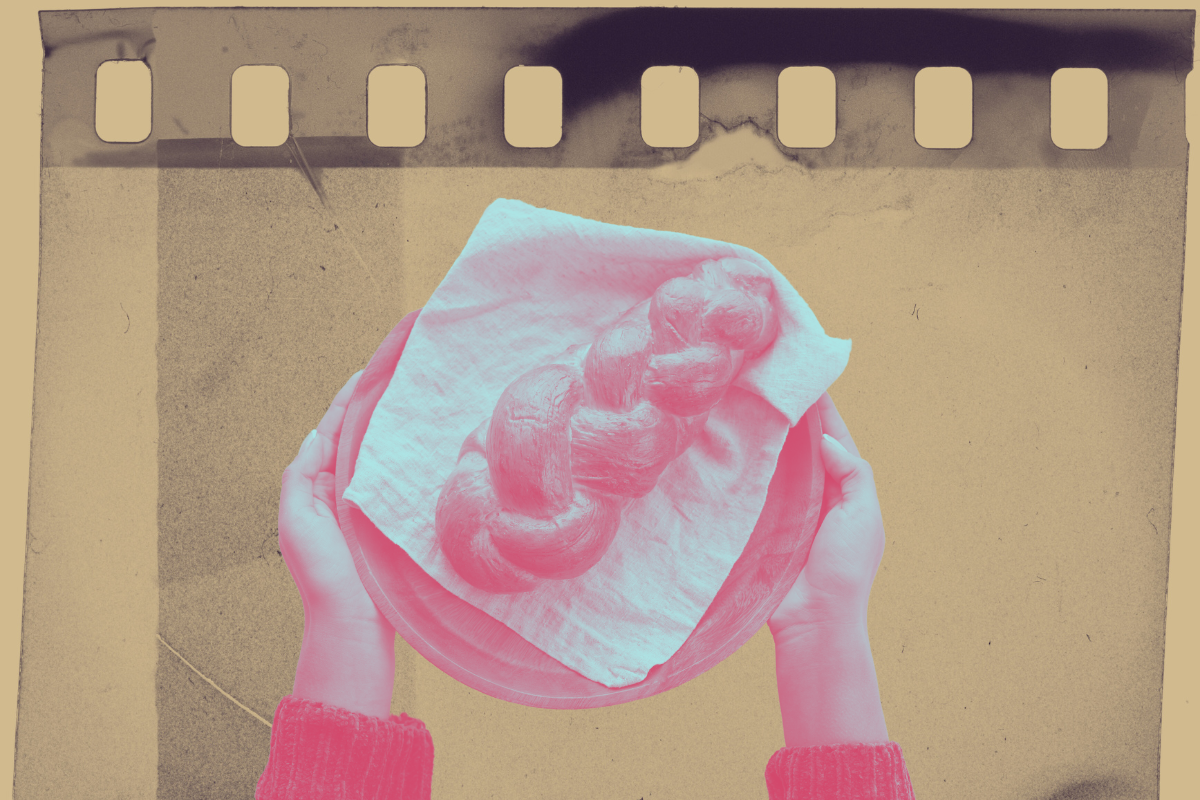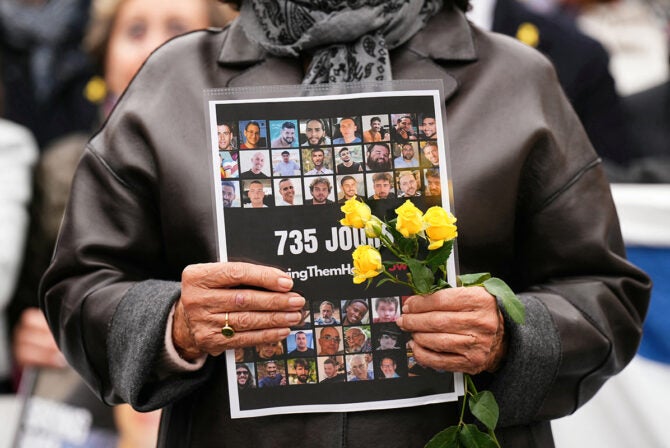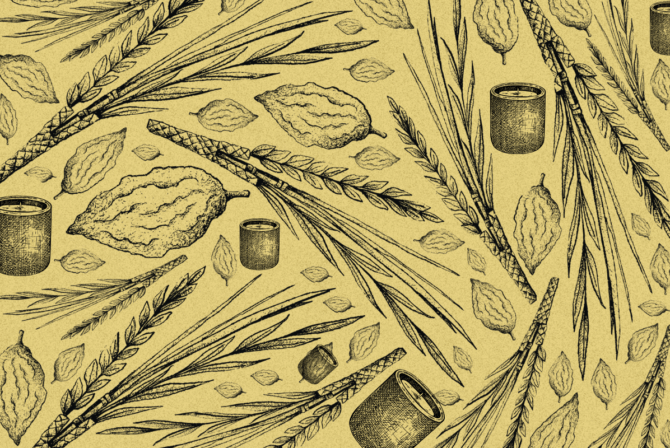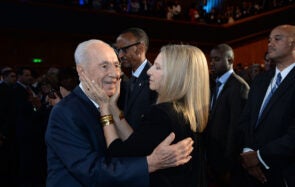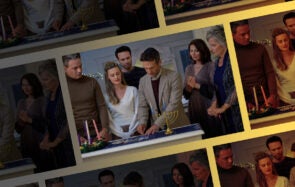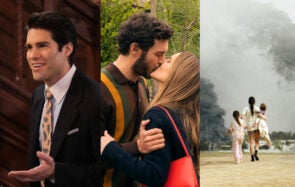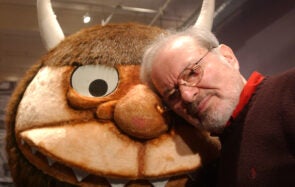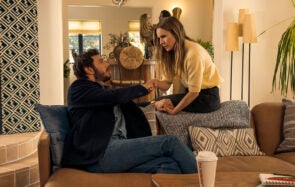Bubbe always answered my calls in the same way. “Bruchele!” she would exclaim, and I would smile at the sound of my Hebrew name, one that was solely used by her. After, when I would ask what she was up to, she almost always had some variation of the same response: “I’m watching your parents’ wedding video… your sister’s bat mitzvah tape… the recording of the baby naming…”
She lived in her memories, spent entire afternoons with her family as entertainment while she rolled out dough for rugelach or molded matzah balls with damp hands so they wouldn’t stick. In the cabinet below the TV was a collection of VHS tapes from her five children — school plays, concerts, weddings — and next to the tapes rested a thinner stack of DVDs from her 15 grandchildren, all of which would keep her company between visits with neighbors and Shabbat services at shul. For my entire life, I only knew the version of Bubbe who lived alone in the house in Marlboro, New Jersey. Zaide died when I was 4 months old, so I grew up assuming this was who Bubbe always was, and this was how she had always enjoyed spending her time.
When I would sleep over after the two-hour drive from Long Island, I would join her and watch one of the home movies, or sometimes for a change, she would put on “The Sound of Music,” but visits with her always meant pictures, stories, memories. I was always listening as Bubbe seemed to drift off to somewhere else. But not on Shabbat. On Shabbat, she turned off the TV, wrapped her arms around me, or one of my sisters, or one of my cousins, and pulled us in to help light the candles. On those nights, I remember she would sit — once the soup was on the table — and she would look at us and listen.
Get Kveller's beautiful, step-by-step guide to experiencing Shabbat on your own terms. Order The Kveller Shabbat Guide here.
When Bubbe and her six siblings decided to publish their mother’s written account of their time escaping Poland during the Holocaust, the stories came at a fever pitch, as if insisting, remember, remember, remember. I was teaching middle school around the time the book, “One Step Ahead,” came out, and Bubbe came into my eighth grade English Language Arts classroom for three years in a row to read excerpts and answer any questions the students had.
The collection of family stories, both old and new, flowed from her more frequently as she aged, but just as the gift of storytelling runs in the DNA of our family, so does a more powerful genetic component. In her final years, depression stole the words from her lips. No longer were my phone calls answered with the exclamation that accompanied my Hebrew name. She began to pick up with a sadness in her voice, asking, “How are you, mameleh?”
After she passed, I noticed my mom start to inhabit some of the same behaviors that I had seen in Bubbe. My mom, now a Bubbe herself, started to watch home videos in the palm of her hand. The recordings were clipped down to a minute or two and played out on the smaller screen of her phone, but it made me think of all those afternoons with past lives playing out on the TV in New Jersey. Mom’s smile began to slip, her words also harder to come by. As she mourned and missed her mom, I started to miss mine. Our time together was often spent looking at photos and I found it to be both a comfort and a hindrance; however, as a mother myself, I was beginning to understand it more.
My youngest child is now 4 and oftentimes, even while he is playing right in front of my very eyes, I pull up baby videos on my phone. I hold the screen up and say, “Come! Look! That’s you! Look how cute you were!” in the way my parents used to do with photo albums. How quickly we dip back into the past and lose sight of the present.
But not on Shabbat.
On Shabbat, we turn off the TV, we discard our phones.
Mom and I circle our hands three times over the soft glow of the candles and spend a moment remembering. We think of Bubbe, of what our family survived in Europe, of what our brothers and sisters are surviving in Israel, of what the women in our family will have to survive to keep our smiles. I open my eyes, look at my husband and my three beautiful children, and thank God for Shabbat, for the gift of the here and now.
